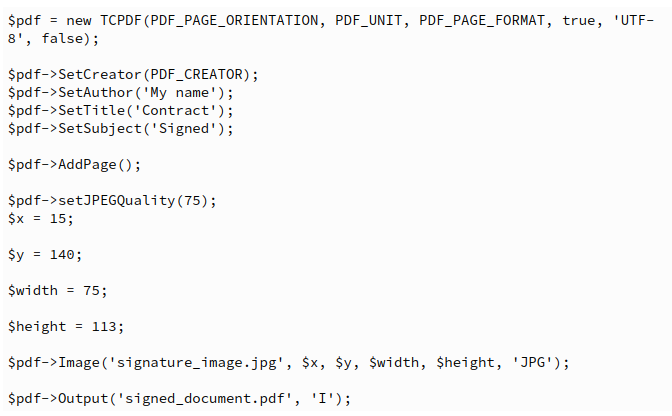Author: Manuel Lemos
Updated on: 2024-03-13
Viewers: 389
Categories: PHP Tutorials, News, Artificial Intelligence
What made AI more interesting was the launch of popular applications like ChatGPT from the OpenAI research laboratory.
Inspired by the increasing popularity of ChatGPT, other well-known companies like Google also decided to launch their artificial intelligence products to a broader public.
Read this article to learn more about the recent launches of Google generative AI APIs and some ideas on how to apply these APIs to generate better PHP code faster.
In this article you will learn about:
1. What is Generative AI
2. Why Generative AI is Important to Software Developer
3. Introduction on How to Implement a PHP Code Generator Using Generative AI
4. Introduction on How to Implement a PHP Code Generator Using Generative AI Google APIs and Tools
1. What is Generative AI
Generative AI is an application of Artificial Intelligence that can generate content in the form of text, images, audio and video, as the result of a process of information supplied by the user of a productive AI application.
For instance, ChatGPT can answer questions about programming by generating a response that includes code.
Some time ago, I published an article that needed some code to generate a PDF document. I used ChatGPT to ask how to create a PDF document in PHP.
Then it answered with a response that included code using the PHP TCPDF library. Check the article section on How to You Can Insert Signatures of People in Your PDF Documents Generated by Your PHP Application.
Here is a sample of the code that ChatGPT generated after minor editing:

2. Why Generative AI is Important to Software Developer
Many developers need to generate content like text documents, images, videos, and audio samples as part of their jobs.
When they use a tool that can automate generating that kind of content, they can finish their work faster.
Once they finish a job, they can move to another job. This way, developers can even make more money if they work, especially as autonomous workers or contractors that are paid once they finish each job.
Using automation tools based on artificial intelligence or not allows the developers to be paid more times and make more money in the same year.
3. Introduction on How to Implement a PHP Code Generator Using Generative AI
When your write PHP code, you follow a particular style. That style is a pattern you observe in every project that uses PHP code to develop an application.
There are parts of applications that do specific tasks and follow certain patterns. For instance, if you access database tables using classes of objects, you probably write ORM classes that do Relational Object mapping.
Many developers use frameworks and tools to perform object-relational mapping. They need to extend some classes that have specific functions and variables.
You follow the same pattern for every ORM class you write, changing the variables that do object-relational mapping to perform similar operations with different tables and table fields.
You must also write code to provide a Web interface to perform CRUD operations, allowing application users to perform joint functions to create, read, update, and delete operations.
Again, the code you must write to implement CRUD interfaces follows the same pattern.
Now imagine that you could have an automated tool that would take a simple request like this:
Create an ORM class named X_class that maps the class variable values into database records of table X.
Then the tool would generate PHP code to implement X_class in just a few seconds.
You could also ask the tool:
Create a CRUD Web interface that allows listing, inserting, updating, and deleting records on table X using ORM class X_class.
The tool would generate classes and template files in a few seconds to implement the CRUD Web pages you asked for as if you have written those files manually.
Wouldn't this be wonderful?
That is the possibility that generative AI opens for you.
Of course, you must learn about AI tools, libraries, or APIs and write the code for that tool.
That is an investment of work you need to do that will pay off after those tools are ready to use because you will work much faster.
4. Introduction on How to Implement a PHP Code Generator Using Generative AI Google APIs and Tools
Following OpenAI and other research companies, Google has been releasing several tools and APIs to implement what I have described above as Generative AI.
Since this is a recent development of Google, I will not cover this extensively because it will undoubtedly evolve in the following months.
For now, I would like to mention a recent announcement from Google about the Palm API for implementing generative AI in practice.
You can also watch this short video of the Google Developer channel news on this topic:
Learning about language models to understand how to use this API would be best. You can implement applications that generate code or files for your applications much faster than if you do it manually.
You can also learn about the Maker Suite, which Google describes as a tool for quickly prototyping AI applications.
The MakerSuite is only available to some developers in private preview.
While it is not made available to all developers, you can try checking the documentation of the Palm API.
You need to be a registered user or login to post a comment
Login Immediately with your account on:
Comments:
No comments were submitted yet.


